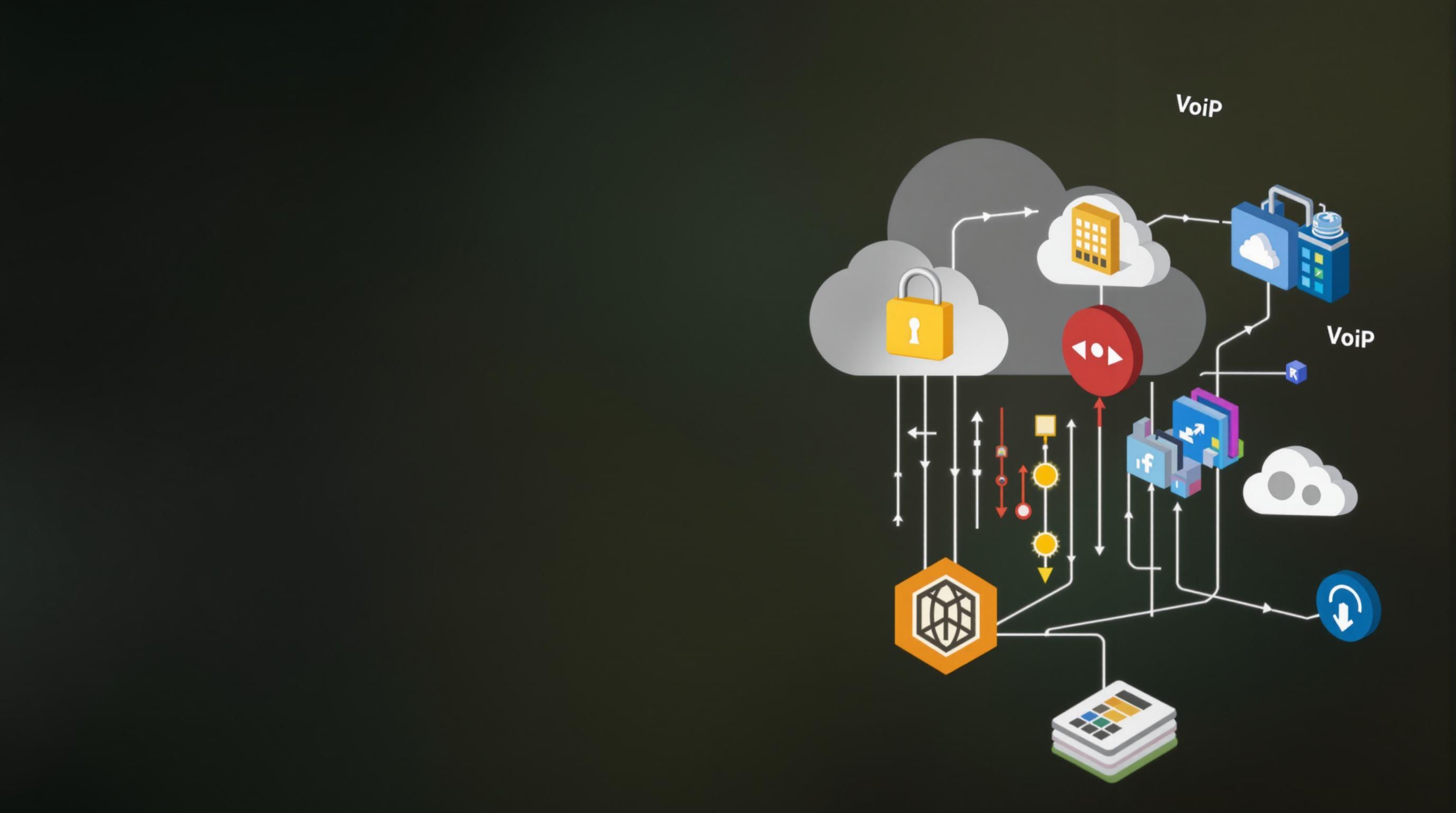Related Articles
- Uncharted Frequencies: The Surprising Role of Subcultures in Shaping Global Digital Landscapes
- Wired Whims: The Unexpected Role of Niche Online Communities in Shaping Global Digital Trends
- Fragmented Signals: Exploring the Shadows of Digital Divide in Emerging Economies and Its Impact on Global Unity
- Decoding the Invisible: How Microbial Communication Could Revolutionize Digital Interactions
- Cryptic Channels: How Encrypted Messaging Platforms Are Reshaping Trust and Transparency in Online Interactions
- Mysterious Modes: The Rise of Cryptographic Channels in Secret Online Dialogues and Their Hidden Impacts
10 Essential Insights on VoIP and Cloud Solutions for Enhancing Compliance and Risk Management in Expanding Enterprises
10 Essential Insights on VoIP and Cloud Solutions for Enhancing Compliance and Risk Management in Expanding Enterprises
10 Essential Insights on VoIP and Cloud Solutions for Enhancing Compliance and Risk Management in Expanding Enterprises
1. Understanding VoIP and Cloud Solutions
Voice over Internet Protocol (VoIP) and cloud solutions have transformed communication and collaboration in businesses. VoIP enables voice communication over the internet, whereas cloud solutions allow users to access data and applications remotely. Together, they offer businesses the capacity to streamline processes and reduce costs.
With the rise of remote work, these technologies have become essential for expanding enterprises. Not only do they facilitate communication, but they also enhance operational efficiency, which is increasingly vital for compliance and risk management initiatives.
The integration of VoIP and cloud solutions provides organizations with the tools necessary to adhere to regulatory frameworks and improve risk management, ensuring that they can safely grow without compromising compliance.
2. Enhancing Data Security through VoIP
Security is a top concern for enterprises, especially those operating in multiple jurisdictions with varying compliance requirements. VoIP can enhance data security by encrypting voice data transmissions, protecting sensitive information from unauthorized access.
Moreover, businesses can implement robust security measures like firewalls and intrusion detection systems within their VoIP frameworks. These measures help ensure that VoIP communications are secure from external threats, making it easier to manage compliance with various cybersecurity regulations.
Incorporating VoIP with security protocols aids in reducing risks associated with data breaches and unauthorized disclosure of information, which can have grave legal and financial implications for enterprises.
3. Compliance Regulations and Frameworks
Enterprises must navigate a complex landscape of compliance regulations, such as GDPR, HIPAA, or PCI DSS, depending on their industry and geographical presence. Understanding these regulations is crucial for maintaining operational integrity and avoiding penalties.
VoIP and cloud solutions can offer built-in compliance features that support enterprises in aligning their communication processes with regulatory requirements. For example, call recording features can aid in meeting compliance by providing records necessary for audits.
By utilizing VoIP and cloud technologies, businesses can create a compliance-focused culture that is adaptable to evolving regulations in their operational territories.
4. Streamlining Communication for Risk Management
Effective communication is a cornerstone of risk management strategies. VoIP systems enhance communication among teams, allowing for real-time discussions and decision-making. This streamlined communication can be vital during crises or compliance challenges.
With cloud solutions, employees can access information and communicate from virtually anywhere, reducing bottlenecks that may arise from geographical limitations. Quick access to information supports timely responses to compliance queries or risk incidents.
In the face of an increasingly interconnected world, Enterprises that leverage VoIP and cloud solutions are better positioned to mitigate risks through effective communication and rapid knowledge sharing.
5. Remote Work and Its Impact on Compliance
The shift toward remote work has necessitated a reevaluation of compliance measures. Organizations leveraging VoIP and cloud solutions can maintain high compliance standards, regardless of where their employees are located.
Cloud-based tools facilitate flexible policy implementation, empowering remote workers without compromising compliance. Tools that automate policy workflows can aid enterprises in keeping track of adherence while providing employees with the resources they need to comply easily.
This adaptability is essential for enterprises aiming for expansion in a distributed landscape, ensuring that compliance is maintained whether employees are in the office or working remotely.
6. Audit Trails and Documentation
Compliance initiatives require accurate audit trails and documentation. VoIP and cloud solutions often include features that automatically log calls, messages, and other communications, creating a clear record of interactions.
This documentation is critical when organizations are undergoing audits or evaluations by regulatory bodies. By having structured and searchable records, businesses can streamline the compliance verification process.
Furthermore, automated documentation saves time and resources, enabling compliance teams to focus on strategic compliance management instead of manual record-keeping.
7. Cost-Efficiency and Compliance Budgets
Adopting VoIP and cloud solutions can result in significant cost savings, which can be reallocated towards compliance efforts. As enterprises expand, managing compliance budgets efficiently becomes crucial.
By reducing operational costs through VoIP technologies, businesses may enhance their compliance capabilities, investing in training and resources necessary to stay compliant. This reallocation of funds also supports ongoing monitoring and response systems.
Optimizing budgets ensures that compliance is not seen as a financial burden but as a strategic investment in long-term operational stability and risk management.
8. Adaptability to Regulation Changes
With technology and regulations continually evolving, enterprises must be able to adapt quickly. VoIP and cloud solutions allow organizations to adjust their processes more swiftly than traditional systems.
This adaptability is crucial when new regulations are introduced or existing ones are amended. Businesses can modify their VoIP settings or cloud configurations to align with new compliance requirements without significant disruptions.
Being flexible in compliance allows enterprises to remain competitive in the marketplace while safeguarding against legal repercussions from non-compliance.
9. Training and Education on Compliance
Investment in employee training is essential for ensuring compliance in the use of VoIP and cloud solutions. Regular training sessions help staff understand compliance policies and the technological tools they are expected to use.
Cloud-based training programs can be deployed to educate employees on security practices, regulatory requirements, and how to effectively utilize voice systems within compliance boundaries. This knowledge empowers employees and promotes a compliance-oriented culture.
By prioritizing training, organizations can enhance their overall compliance posture and reduce the risks associated with employee errors or misunderstandings regarding compliance protocols.
10. Future Trends in VoIP and Cloud Compliance
As technology continues to innovate, the future of VoIP and cloud solutions will likely bring enhancements in compliance management. New features, such as advanced AI-driven analytics, offer organizations the opportunity to predict compliance risks before they arise.
The convergence of technologies may also lead to more integrated solutions that support comprehensive compliance management. Enterprises need to stay informed about technological advancements to leverage their potential fully.
Ultimately, incorporating emerging technologies into VoIP and cloud infrastructures will enable expanding enterprises to thrive while effectively managing compliance and risks in an increasingly complex environment.




